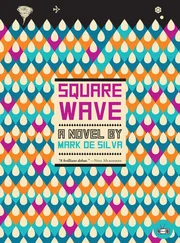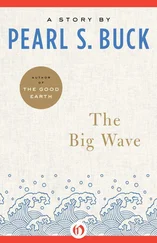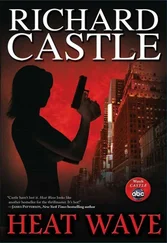And I can see our first evening here, Steve spread out on the lawn after the removal men had left, hands locked under his head, sun and relief and a smile on his face. Vik and Malli, then four and nearly two, hiding in packing boxes indoors, a little lost because they could no longer shout over the fence to their friends next door. And Malee, our nanny, insisting on cooking kiribath and boiling milk in a new clay pot until it spilled over, for plenty and good luck. For even more good fortune, Steve insisted on playing the pirith tape my mother had sent from Colombo. He’d kept it on repeat all day, and I turned the volume down so the removal men wouldn’t be distracted by chanting Buddhist monks.
We had lived in this house three and something years when we left for Colombo that night in early December. And we still hadn’t got rid of that hall carpet. But we had plans for the next summer, to redecorate the whole house, move the boys into separate bedrooms. By converting the loft, Steve and I could finally have our own studies.
With each visit back to the house in this last year, I grew more and more impatient with the ugly hall carpet. Yet how could I throw it out? The boys would sit on it to put on their shoes every morning, that’s where they’d fling their jackets down when they came in from school. Still, despite my hesitations, that carpet is now gone. I rebuked myself once I was rid of it. How could I have tossed their footprints out? Yet I keep admiring my new floor, the hallway is so much brighter now. But why does it matter, why do I care? They are not here. So what am I doing? Playing house?
Malli often did that, with his friend Alexandra. Played house. And that’s exactly what she did the first time she came back to our home after the wave. She walked straight into our playroom, pulled out the dolls’ house from a corner, and played house, as if she’d been here just yesterday. She remembered it, she said, although she was last in that room more than four years ago, and then she was not yet five.
In those months and months after the wave, I could hardly bear to hear the names of my children’s friends. And when I began to see them again, I was afraid of being reminded of how my boys would be, of knowing what they are missing. I see my children’s friends often now. They are bubbling over when we meet, I enjoy their sparkle. And they make my boys real, so they are not beyond my field of vision, as they were in those first years.
Kristiana and Alexandra are over whenever I am back in the house. They help me water the garden, we discuss their homework, they punch the doors wearing Vik’s boxing gloves. They drum on Malli’s tabla. And I remember him twirling frenetically but with quite remarkable rhythm to the soundtrack from Lagaan , delicious in his Jaipuri turban, with its long tail wafting behind him, the quickening pulse at the end of “Chale Chalo” making him utterly dizzy.
But I am an empty-handed mother. I can’t offer Vik to these girls to make them laugh at his silly jokes. I can’t give them Malli, so he and Alexi can talk about getting married — or “merried,” as Malli would say — as they often did. “You are mad to get married, Mal,” Vik would say to his brother. “Your wife will boss you around, she will shout at you from the upstairs window when you’re coming home from work.” Where that boy got his ideas about marriage from, I don’t know.
Now Alexi is in our living room wearing the same red school uniform that my boys wore. A long thread dangles from the frayed cuff of her sweatshirt, the boys’ sweaters were always worn around the cuffs like this. I look at Alexi, and for a moment I wonder, really, am I in this life or that?
She snaps me out of it, this nine-year-old girl. “ Why did they have to die?” she asks suddenly and loudly, with great drama, throwing herself on a pile of cushions. “How can five of them die?” I have no words. “Was it scary when the wave came?” she goes on, never mind my discomfort. I tell her it happened fast. She ponders this for a while before saying, “If you and Steve had died and Vikram and Malli had survived, will they have come to live with us?” As she waits expectantly for my answer, I realize that this is her preferred scenario, and it’s something she’s been wondering about for years. I say, “Yes, of course.” She smiles. “Oh good . So my mum has your house keys, right? So we would have come and got their things and brought them to our house, right?” For days later I carry that image, a forlorn Vik and Malli standing outside our front door, having come “to get their things.”
Five years, and how my children’s friends have grown. My boys would have too. I am increasingly curious now when I see their friends. My eyes can’t stop probing, so I can better picture Vik and Mal. I meet Vikram’s mates Daniel and Joe for the first time in five years. Joe towers above me as he hugs me so gently. He is nearly thirteen. A fist flies out of nowhere and knocks me down hard. This is how Vik would look. I am transfixed by the changes in these two boys. I stare into what I will never know in my own life, a speck of acne, broadening shoulders, a hint of facial hair. It is strangely satisfying, projecting my boys into the present like this. But Vik enjoyed the company of his mates so much. And here am I with them, when he can’t be. I feel I am handling contraband.
Our life is also kindled when I go back to our old haunts. I avoided these places until recently, and I insisted I’d never return. But slowly I am finding the nerve to revisit them. Sarah and I go walking on the borders of Hampstead Heath, one of Steve’s favorite places in London to roam. The four of us were here just some days before we left for Colombo that December. And I have not been back until now. The hedges along the paths are quick with finches, and it’s as though I’ve never been away. It’s hard to believe that we were not together here last Saturday. I know each tree we would picnic under, I know where the boys tried to play rugby with their dad. I see the spot where Steve led them to tackle me to the ground as I foolishly ambled over to throw back the ball they’d lobbed at me. The ground was all muddy, I was wearing white jeans, and they were wildly hysterical. Amused I was not.
M alli was about two when he began telling us about his real family. We were his family, too, but he had another family, his “real family.” “I am going back to them,” he’d say. “I am staying with you only a little time.”
“So what’s your real dad’s name?” Steve would ask. “Tees.” “ Tees ? What kind of weird name is that?” “Don’t laugh, Dad, it’s a real name.” “And your mum?” “Sue. And I have a sister. Her name is Nelly.”
He said he loved his sister the most. They lived in America. “Our house is near a big lake, we have a boat even, we do . It’s in Merica.”
Malli was undeterred by Vikram’s smirks and the incredulity of his little friends. “But you don’t have a sister, Mal. Where is she? Show me.” “Don’t be silly, Alexandra, she can’t come here. She’s in another country, Merica.”
My mother and our nanny, Malee, insisted that he was talking about a past life. “This is just the age some children remember their previous birth,” they’d say. They sometimes asked that Steve and I “do something” about it, go to the temple, talk to a priest.
All we did was entertain our children by pretending to be Malli’s “real” parents, we’d do it for whole weekends sometimes. Steve proposed they lived in rural Mississippi. The boys had raucous fun when he acted as Tees coming to London to visit Malli. In his rather comic version of a southern accent, he would launch into tirades about how crowded the big city was and how he missed the mosquitoes of the swamps. “Again, again, Dad. Do Tees again!”
Читать дальше












